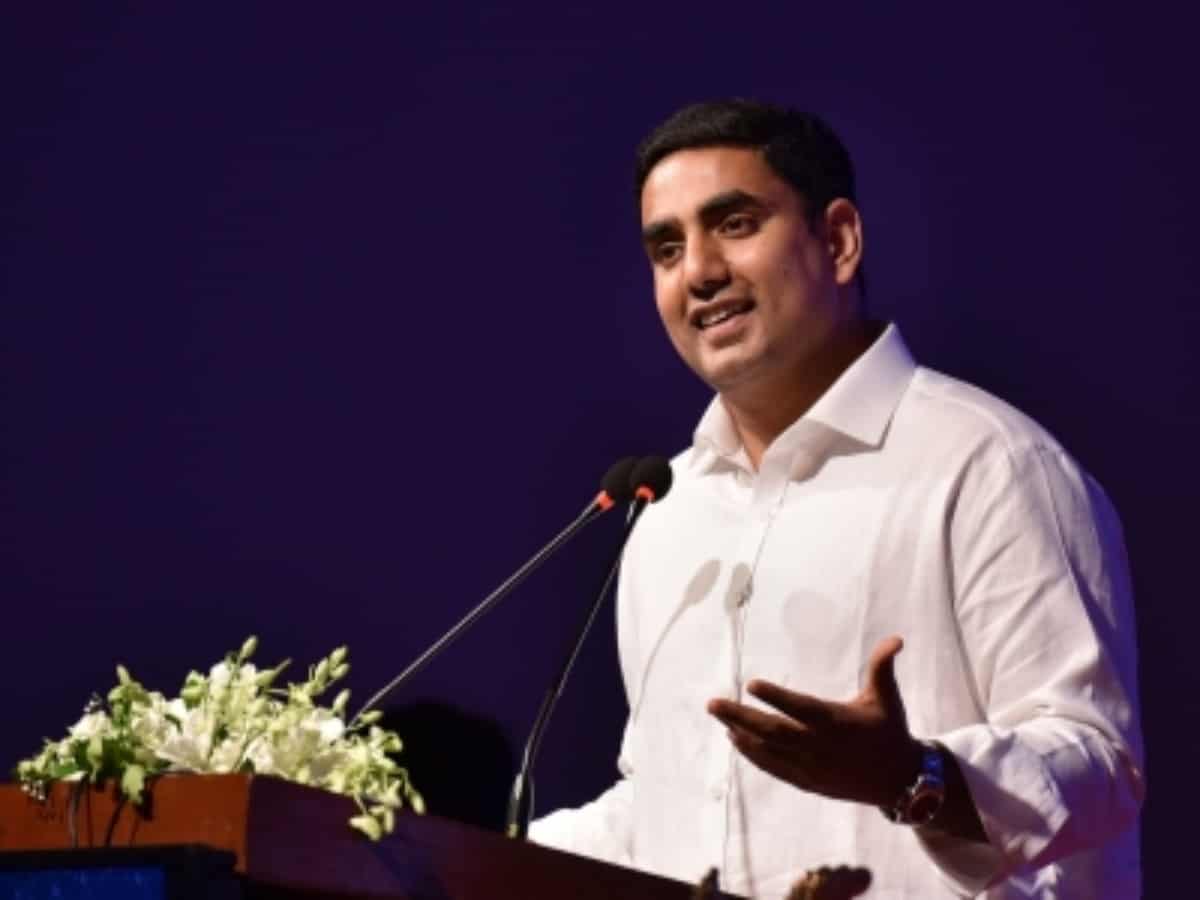
New Delhi: Andhra Pradesh Crime Investigation Department chief N Sanjay on Sunday said proper procedures were followed while arresting former chief minister N Chandrababu Naidu in the Rs 371-crore alleged fraud case and rejected allegations by the TDP chief’s son Nara Lokesh that its action was in violation of laws.
Sanjay, who briefed media along with Additional Advocate General P Sudhakar Reddy, said the agency was under “pressure” to clarify the facts related to the Skill Development Corporation scam that occurred in 2015-16 in Andhra Pradesh as several TDP leaders were spreading “misinformation.”
Naidu is currently in judicial remand for his alleged role in this scam and has filed two petitions in the High Court which is scheduled to hear the matter on September 19.
“When accused go about misleading and misforming, it’s CID’s responsibility to put forward their option to clarify. … Several political leaders are going around giving their version and there is so much mudslinging against the particular judge, CID, and government of the day,” Sanjay said when asked about the urgency of holding a media briefing in the national capital ahead of the court hearing.
“In social media, so much filth has been generated. There is also a lot of pressure on CID to come out and clarify,” he added.
Sharing details of the alleged scam, the CID chief said the Andhra Pradesh Skill Development Corporation was established without prior cabinet approval, and even the tripartite agreement was signed without the proper signatures of the parties Siemens India and DesignTech.
“The agreement did not mention the government order number and date and even the 90:10 funding formula. But about Rs 330 crore money was transferred to the DesignTech. With GST of Rs 41 crore, the total scam amount comes to Rs 371 crore,” he claimed and added that the money was further sent to shell companies.
On the allegation of Naidu’s son and TDP leader Lokesh that CID violated Section 17(A) of the Prevention of Corruption (Amendment) Act, 2018 while arresting Naidu, the CID chief said, “We have not violated any laws as the amendment to the Act took place in 2018 and the crime occurred before that.”
Additional Advocate General P Sudhakar Reddy said the 2018 amendment was not with retrospective effect. The provisions of the law were followed, he asserted.
Section 17(A) of the 2018 amendment law stipulates prior approval of a competent authority for conducting an investigation into any offence alleged to have been committed by a public servant and investigation by an officer not less than the Director General of Police level.
On another allegation that the CID has not arrested two officials Prem Chandra Reddy and Ajay Kallam Reddy who had approved the project and released the funds, Sanjay said these two officials are not the “conceiver of the project”.
“We have caught hold of the conceiver of the project. In the process of our investigation, we will examine all officials involved in the project. We need to examine back and forth,” he told PTI.
Sanjay further said that some of the officials were “forced” to sign by the then CM but those officers have maintained “shadow files” separately to make themselves clear at a later date.
“This shows that they are not directly involved in the crime. …They have been roped in to carry out,” he said.
The CID chief also mentioned that there are 37 accused, out of which 13 are company undertakings and 24 are individuals. Out of 24 individuals, 10 have been arrested so far. Seven have sought anticipatory bail. Another seven have to be arrested, he said.
Meanwhile, the Telugu Desam Party at an all-party meeting convened by the government on Sunday in New Delhi raised the issue of its leader Chandrababu Naidu’s arrest and said it will also bring it up in Parliament.



